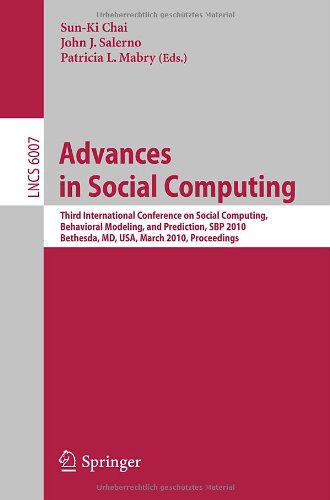

Most ebook files are in PDF format, so you can easily read them using various software such as Foxit Reader or directly on the Google Chrome browser.
Some ebook files are released by publishers in other formats such as .awz, .mobi, .epub, .fb2, etc. You may need to install specific software to read these formats on mobile/PC, such as Calibre.
Please read the tutorial at this link: https://ebookbell.com/faq
We offer FREE conversion to the popular formats you request; however, this may take some time. Therefore, right after payment, please email us, and we will try to provide the service as quickly as possible.
For some exceptional file formats or broken links (if any), please refrain from opening any disputes. Instead, email us first, and we will try to assist within a maximum of 6 hours.
EbookBell Team

5.0
70 reviewsSocial computing is concerned with the study of social behavior and social context based on computational systems. Behavioral modeling provides a representation of the social behavior, and allows for experimenting, scenario planning, and deep und- standing of behavior, patterns, and potential outcomes. The pervasive use of computer and Internet technologies by humans in everyday life provides an unprecedented en- ronment of various social activities that, due to the platforms under which they take place, generate large amounts of stored data as a by-product, often in systematically organized form. Social computing facilitates behavioral modeling in model building, analysis, pattern mining, and prediction. Numerous interdisciplinary and interdepe- ent systems are created and used to represent the various social and physical systems for investigating the interactions between groups, communities, or nation-states. This requires joint efforts to take advantage of the state-of-the-art research from multiple disciplines improving social computing and behavioral modeling in order to document lessons learned and develop novel theories, experiments, and methodologies to better explain the interaction between social (both informal and institutionalized), psyc- logical, and physical mechanisms. The goal is to enable us to experiment, create, and recreate an operational environment with a better understanding of the contributions from each individual discipline, forging joint interdisciplinary efforts. This volume comprises the proceedings of the third international workshop on - cial Computing, Behavioral Modeling and Prediction, which has grown trem- dously.